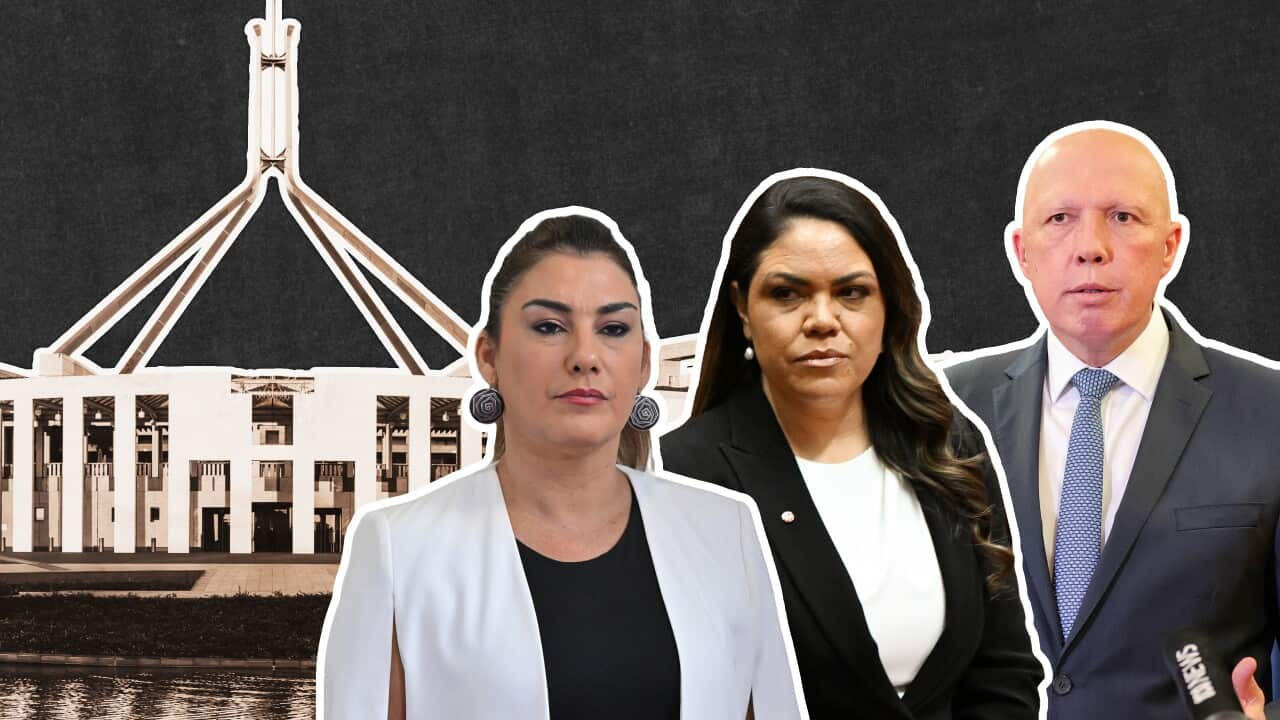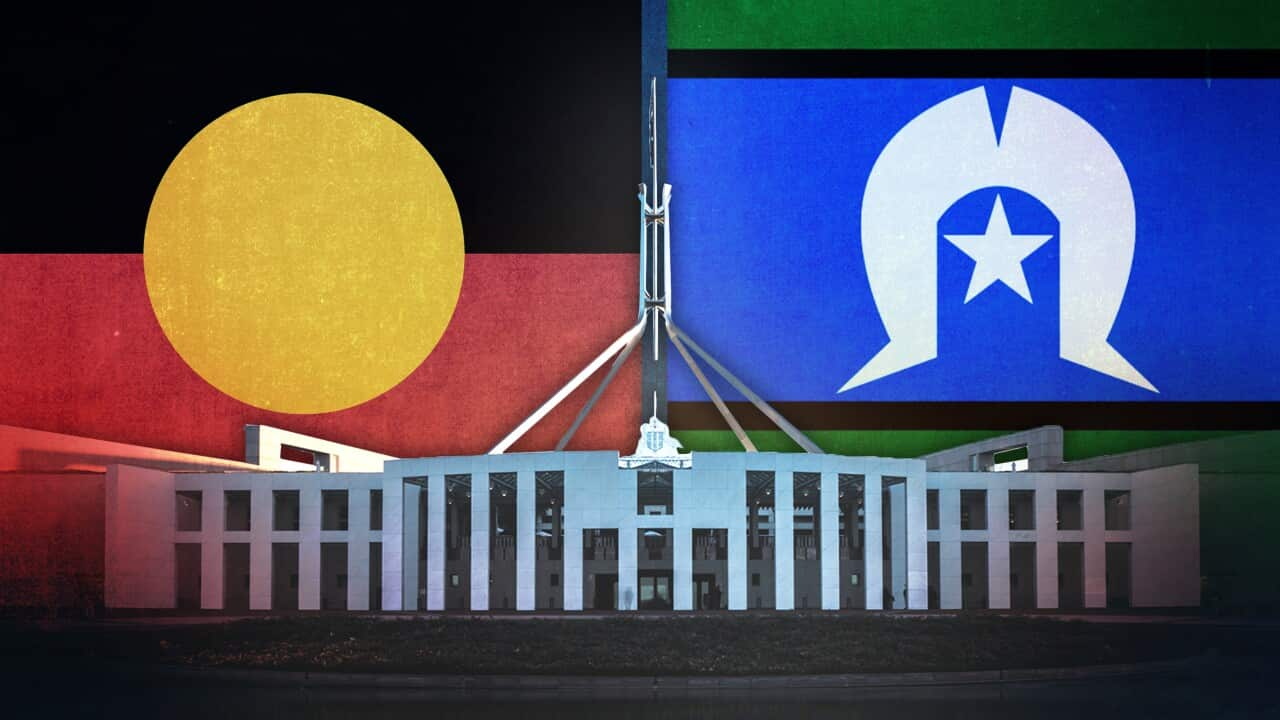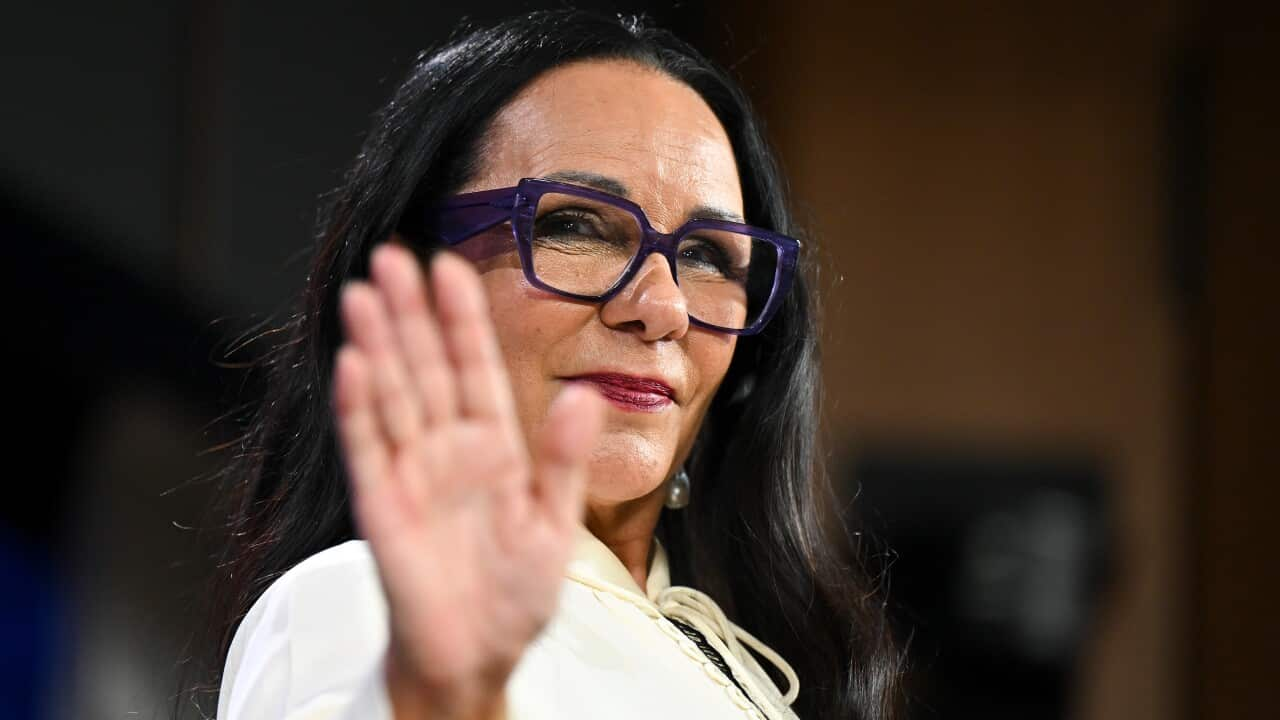KEY POINTS
- The No camp in the Voice to Parliament debate is multi-pronged.
- Advance Australia, a right-wing activist group, is leading the conservative charge.
- But the Blak sovereign movement has also said no to the Voice.
The Voice to Parliament is being attacked by politicians from radically different ends of the political spectrum.
Indigenous Australians Minister Linda Burney has outlined her idea of the Voice's four priorities, but Labor insists how it would function will be worked out after the referendum.
That leaves Australians hearing two strains of argument from the No camp: the Voice would not be powerful enough to , or it could be so powerful it might upend Australia's parliamentary democracy.
So who's making what arguments, and why are they so different?
Here's what you need to know.
Fair Australia
Fair Australia is led by the Opposition's Indigenous Australians spokeswoman Jacinta Nampijinpa Price, a Warlpiri-Celtic woman.
Fair Australia argues the Voice would divide Australia by race and "upend our parliamentary democracy in ways we are yet to understand", a claim rebuffed by the solicitor-general.
"It's divisive, it's dangerous, it's expensive and it's not fair," Fair Australia's website reads.

Jacinta Nampijinpa Price is leading the charge for Fair Australia. Source: AAP / Mick Tsikas
Fair Australia was the group behind an ad in The Australian Financial Review, depicting Mayo - who it labelled a "radical activist" - at the feet of Wesfarmers chief executive Michael Chaney, who is shown handing him money.
The ad was widely criticised for being racist and Nine, the AFR's owner, . But it remains on Fair Australia's social media pages.
The organisation lists businessman and former Coalition candidate Warren Mundine - a Bundjalung man - as a public spokesman, and former prime minister Tony Abbott as a key supporter.
Fair Australia was forced to remove a quote from its website claiming the grandson of land rights activist Vincent Lingiari was opposed to the Voice. The man, named Stewart, said he was not related to Mr Lingiari and said he was humiliated by the post.
Posts claiming the relation remain on Price and Mundine's social media accounts.
Advance
Fair Australia is an outgrowth of Advance, a conservative activist group launched as an answer to progressive political activist group GetUp in 2018.
Advance's website lists campaigning against a "woke school curriculum", pushing states to end COVID-19 lockdowns, and standing up for Anzac Day "when it came under attack from ABC commentators" among its biggest achievements.
It's currently running petitions on trans women in sport, nuclear energy, and net zero emissions.
Advance is behind the Not Enough social media campaign.
Despite Fair Australia's arguments about the Voice's unknown consequences, the Not Enough campaign primarily targets voters aged 18-30 in cities with claims the body would lack the power to effect real change.
Advance has previously been in hot water over its pre-election advertising.
It displayed a giant billboard featuring a picture of Chinese President Xi Jinping casting a vote for Labor, with the words: "CCP (Chinese Communist Party) says vote Labor”.
Last year, Olympic swimmer Emily Seebohm threatened legal action after Advance used her picture on a billboard attacking independent MP Zali Steggall with the words: "Women’s sport is not for men”.

Advance has previously used controversial images on billboards during election campaigns.
“I have no idea who Advance Australia is but … I don’t want my photo next to something saying 'transphobic',” Seebohm told The Project.
“That is a statement that I’ve never said, and I don’t suggest nor support that and ... the photo is just horrific.
"The whole thing is just awful to me.”
The Blak sovereign movement (BSM)
Independent senator Lidia Thorpe, who quit the Greens partly because of her desire to campaign against the Voice, is perhaps the BSM's most well-known member.
Thorpe voted against the referendum legislation in June, describing the Voice as "fake, pretend, a joke" and said Indigenous people were still fighting colonisation and an "illegal" constitution.

Independent Senator Lidia Thorpe and members of the Blak Sovereign Movement arrive for a press conference at Parliament House. Source: AAP / Lukas Coch
"You're following the King, we're all bound by the King. And now poor little blackfellas are begging for a seat at the table. All we get is to become advisers with no power."
Thorpe has consistently demanded Truth and Treaty instead of what she calls the "powerless" Voice.
BSM member Michael Mansell, chairperson of the Tasmanian Aboriginal Centre, that the Voice couldn't do anything practical for Aboriginal people.
"If we need a collective Voice, then at least give it decision-making power, " he said.
"The proposed Voice cannot distribute resources, cannot give land, veto another Northern Territory intervention and cannot even save itself from being gotten rid of."
Mansell told NITV in June: "We call on the people of Australia to vote it down, so that Albanese has to come back to the table with Aboriginal people and begin discussions about seats in the parliament and the treaty."
The Opposition and other conservative politicians
Unsurprisingly, given Price is fronting Advance's campaign, the Opposition is also against the Voice.
For all the talk of grassroots campaigns, much of the debate will still be coming out of Canberra.

Pauline Hanson is an outspoken opponent of the Voice. Source: AAP / Mick Tsikas
One Nation leader Pauline Hanson has also long been an outspoken opponent of the Voice, which her party was attacking even under the former Coalition government.
Hanson is demanding to be included in the official No pamphlet - sent to Australian households and outlining the key arguments against the Voice. If not, she says she'll distribute her own.













